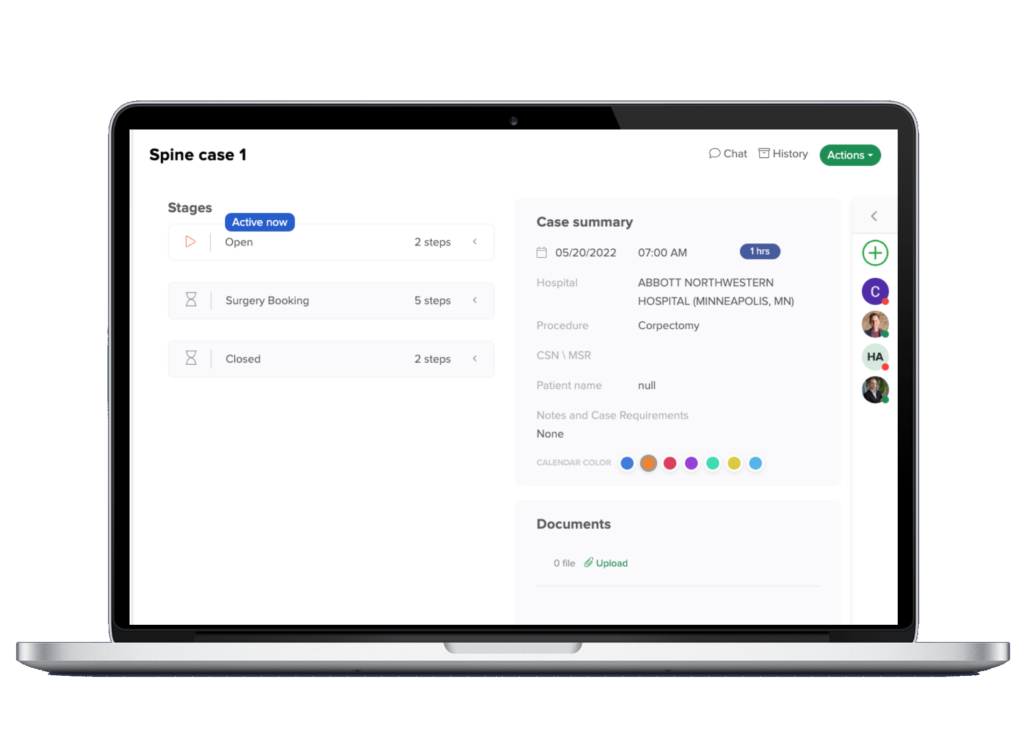The complexity of patient referral management in healthcare systems presents numerous challenges, from delayed appointments to administrative inefficiencies. As healthcare providers strive to enhance patient outcomes, streamline operations, and reduce costs, optimizing referral workflows becomes essential. HUB Healthcare offers a comprehensive platform designed to address these challenges, providing seamless solutions tailored to the unique needs of each healthcare facility.

The Challenges in Healthcare Referral Management
Healthcare systems often grapple with manual referral processes, leading to significant inefficiencies:
Referral Backlogs: Manual intake through disconnected systems like fax machines and standalone EMRs often creates backlogs, delaying patient appointments and causing frustration.
High Call Volumes: Scheduling staff are overwhelmed with patient calls, many from individuals proactively seeking updates due to delayed communication.
Fragmented Systems: Multiple platforms for managing referrals, scheduling, and patient communication create duplication of work and increase the risk of errors.
Complex Authorization Processes: Insurance verification and authorization are often time-consuming, further delaying patient scheduling.
Limited Patient Engagement: Patients frequently lack visibility into their referral status, leading to uncertainty and dissatisfaction.
The Impact of These Challenges
These challenges result in prolonged wait times, decreased patient satisfaction, and increased operational costs. Clinics and hospitals face staff burnout, missed revenue opportunities due to no-shows, and inefficient resource utilization.
How HUB Healthcare Provides Solutions
HUB Healthcare’s platform is built to transform referral management through:
Centralized Digital Dashboard: Integrates with existing systems like Cerner, providing a single interface to track and manage all referrals, reducing manual errors and streamlining workflows.
Automated Communication: Sends referral status updates, appointment reminders, and pre-procedure instructions via text and email, reducing call volumes and improving patient engagement.
Self-Scheduling Portals: Allows patients to book their appointments directly through an online portal, minimizing the need for manual scheduling and enhancing patient convenience.
Conditional Workflows: Automates processes such as insurance verification, document collection, and referral screening, ensuring that only complete referrals proceed to scheduling.
Customizable Solutions: HUB Healthcare adapts to the specific needs of each facility, providing tailored solutions that integrate seamlessly with existing workflows without disrupting operations.
The Benefits of Implementing HUB Healthcare
Implementing HUB Healthcare leads to measurable improvements:
Reduced Administrative Burden: Automation reduces staff workload, allowing them to focus on patient care and complex cases.
Improved Patient Satisfaction: Clear communication and self-service options empower patients and reduce uncertainty.
Enhanced Operational Efficiency: Streamlined workflows minimize delays, reduce costs, and optimize resource utilization.
Scalable Integration: HUB Healthcare supports phased implementation, allowing healthcare systems to start with immediate improvements and scale up over time.
Conclusion
As healthcare systems continue to evolve, effective referral management is critical to delivering timely, high-quality patient care. HUB Healthcare provides a robust platform that addresses the key challenges in referral management, offering solutions that enhance efficiency, reduce costs, and improve patient outcomes. Explore how HUB Healthcare can transform your referral processes by visiting www.hub.healthcare.

For more insights on improving patient referral management, visit the American Hospital Association’s guide on referral challenges and solutions in healthcare systems.





